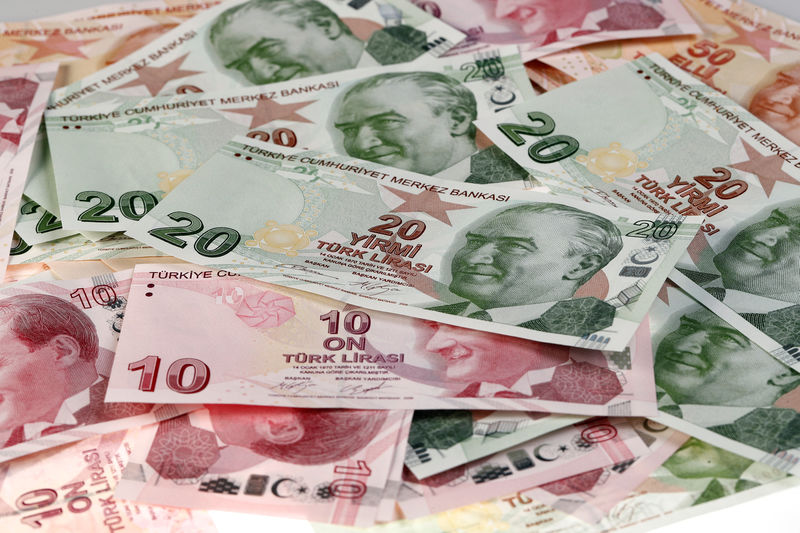Gold prices set for weekly gains on dovish Fed outlook; silver near record high
LONDON (Reuters) - In a year when most emerging markets have enjoyed stellar gains, Turkey has been an outlier, pummelled by double-digit inflation, political concerns and the central bank's perceived inability to pursue independent monetary policy.
Here are five graphics that illustrate how Turkish assets have been separated from the pack and why the underlying economic picture and the country's large current account deficit exaggerate any hesitation in foreign investment inflows:
1) WHERE'S THE BOTTOM?
Turkey's lira has hit a record low of 3.9780 against the dollar on Tuesday, edging close to the psychologically important 4 per dollar threshold. It has now weakened more than 15 percent against the U.S. dollar and the euro since mid-year and also underperformed emerging market peers - weakening nearly 10 percent (ZARTRY=R) this year against South Africa's rand
Turkish stocks are up 20 percent this year in dollar terms but lag the 32 percent gains on broader emerging markets (MSCIEF). The Istanbul bank index (XBANK) has lost 10 percent this month while local 10-year bond yields are at record highs around 13.5 percent
Turkish Assets - http://reut.rs/2AiePc1
2) UP OR DOWN?
The central bank faces the unenviable task of trying to balance double-digit inflation against President Tayyip Erdogan's persistent demand for lower interest rates. By driving up the cost of energy and other imports, lira weakness has fuelled inflation which stood near a nine-year high of 11.9 percent.
The country suffered from spiralling inflation as recently as the turn of the century, prompting the International Monetary Fund to step in with an emergency rescue package.
Turkey CPI past 20 years - http://reut.rs/2AjeQfG
The central bank has responded to the latest lira rout by raising the weighted average cost of funding, but with limited effect. As a result, Turkish real, or inflation-adjusted bond yields, are well below those in other emerging markets. For a country with memories of raging inflation as high as 90 percent as recently as the late 1990s, the fear is that structurally high inflation expectations get re-embedded in the system.
"The price always of the (central bank) being behind the curve is persistently high inflation, and lower growth than should have been the case, if the central bank had been allowed to do its job like a normal central bank," said Tim Ash at Bluebay Asset Management.
Turkey Consumer Prices and O/N Lending Rates - http://reut.rs/2AkfFFd
3) WHERE'S THE BALANCE?
Turkey relies on external financing for its large current account deficit. Data shows that the deficit for the first nine months of 2017 totalled $31.1 billion (£23.5 billion) - a 27 percent jump from a year ago.
Here too it has lagged other emerging markets, which have for the most part repaired excessive external payments gaps.
"Turkey has a high susceptibility to event risk mainly driven by domestic political risks and the country's large external financing needs due to wide current account deficits and sizeable external or foreign currency refinancing requirements," said Kristin Lindow at Moody's Investors Service on Friday.
Fragile Five - http://reut.rs/2xyQZaU
Turkey Current Account Balance - http://reut.rs/2zTm35w
